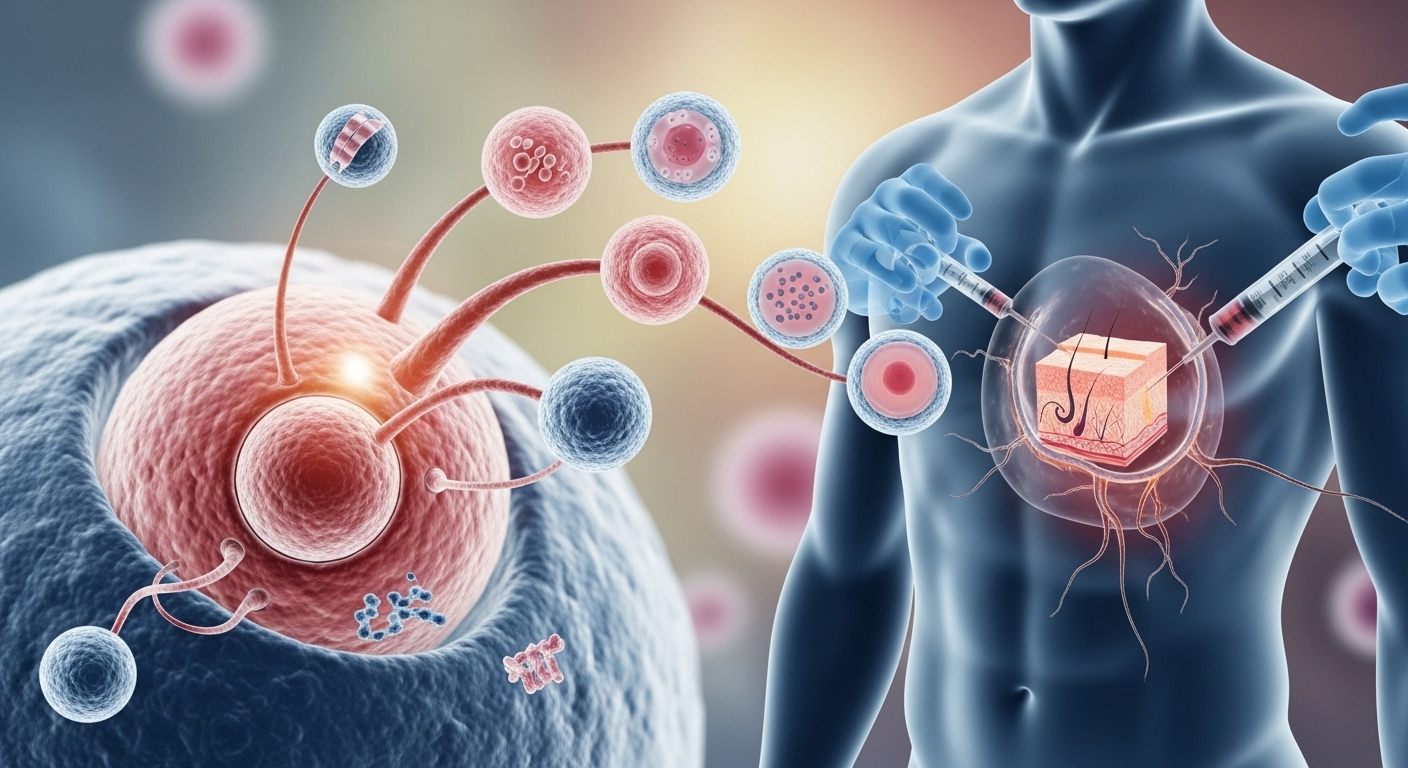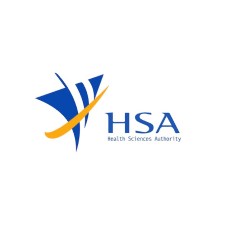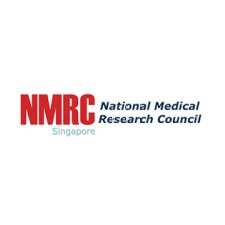STEM CELL THERAPY
Bridging Care, Building Trust

Stem Cell Therapy
Stem cell therapy is an advancing field within regenerative medicine, leveraging undifferentiated cells that can develop into specialized cell types (e.g. muscle, nerve, blood) to support the repair, replacement, or regeneration of damaged tissues and organs.
Core Principles: What Are Stem Cells?
- Self-renewal: They can replicate indefinitely to generate more stem cells.
- Differentiation: They can evolve into specific cell types like cartilage cells, neurons, or insulin-producing cells.
🧬 Types Used in Therapy
Type | Source | Typical Applications |
Mesenchymal Stem Cells (MSCs) | Bone marrow, adipose tissue, umbilical cord | Joint repair (e.g. osteoarthritis), autoimmune conditions |
Hematopoietic Stem Cells (HSCs) | Bone marrow, peripheral or cord blood | Blood cancers, bone marrow disorders |
Induced Pluripotent (iPSCs) | Reprogrammed adult cells (e.g. skin cells) | Personalized tissue modeling and research phase applications |
Embryonic Stem Cells (ESCs) | Early embryos (ethically restricted) | Very limited use due to ethical and regulatory constraints |
How It Works
- Harvesting: Cells obtained from patients (autologous) or screened donors (allogeneic).
- Processing: Purified and prepared in certified laboratories.
- Administration: Delivered via IV infusion or targeted injection.
- Mechanism:
- Direct regeneration: Cells transform into repair tissue.
- Paracrine effect: Release of factors that reduce inflammation and stimulate tissue healing.
Main Applications
- Orthopedic: Cartilage repair (e.g. knees, osteoarthritis)
- Neurology: Supportive use in spinal cord injuries, stroke recovery
- Autoimmune: Conditions like lupus or multiple sclerosis
- Cardiology: Experimental use for heart muscle recovery
- Wellness support: Fatigue, inflammatory conditions (adjunctive use only)
Benefits vs Limitations
Potential Benefits | Important Limitations / Risks |
Minimally invasive compared to surgery | Only hematopoietic stem cell transplants are approved in Malaysia (PMC, Reddit, PMC, Reddit) |
May reduce inflammation, promote healing | MSC and other non‑HSC treatments remain experimental in Malaysia |
Can provide symptomatic relief for chronic conditions | Risks include allergic reaction, infection, IV‑related side effects |
Faster recovery time in select cases | High out-of-pocket cost; therapeutic outcomes cannot be guaranteed |
Regulatory & Ethical Context in Malaysia
- Only hematopoietic stem cell transplants (e.g. for blood cancers) are established and performed in public/university hospitals (moh.gov.my).
- Other stem cell therapies, including MSCs, are considered experimental and permissible only under approved clinical research frameworks (PMC).
- All research involving stem cells must be reviewed by:
- Institutional Ethics Committee (IRB/IEC) or,
- Medical Research & Ethics Committee (MREC) and NSCERT, with mandatory registration in the National Medical Research Registry (NMRR) (Azmi & Associates).
- Providers must operate within licensed facilities under the Private Healthcare Facilities & Services Act 1998, and any cell therapy product must comply with NPRA/CGTP product registration or be used under approved access provisions (PMC).
Patient Advisory Notes
- Seek facilities with transparent clinical trial data, ethical oversight, and NSCERT/MREC approval.
- Avoid clinics with overly-promising claims (e.g., “miracle cures” or guaranteed results).
- Note that while Asia (e.g. South Korea) has approved several MSC therapies, Malaysia currently treats MSC therapies only within approved research frameworks (Reddit, PMC).
- Regulatory updates are ongoing; a new third edition of Malaysia’s stem cell guidelines is under public consultation as of late 2023 (Baker McKenzie InsightPlus).
Example Patient Note
A case in early 2025: A Singaporean traveled to Selangor for MSC knee therapy (harvesting from umbilical cord), treated in a certified lab, costing RM 90,000. After initial swelling and pain, patient experienced resolution of knee pain and regained mobility. Outcome remains individual and precisely monitored (Reddit).
🌟 Summary & Best Practice
- Approved: Hematopoietic stem cell transplant for blood disorders.
- Investigational: MSC infusions or other cell therapies—only acceptable under trial or research protocols, not sold as commercial treatment.
- Requirements: Ethical board approvals, registration in public trial registry, NPRA/CGTP guidelines compliance, facility licensing.
- Patient communication: Always emphasize transparency—state investigational status, risk variability, and absence of guaranteed outcomes.
Ready to Begin Your Healthcare Journey?
Get a free consultation with our medical experts to discuss your treatment options






